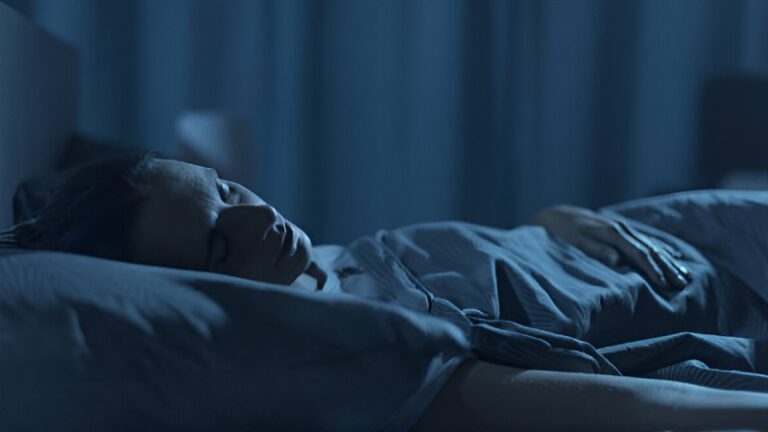Sleep is more than just rest it’s a powerful tool for physical health, mental clarity, and emotional well-being. Yet, many people struggle to get quality sleep due to lifestyle habits, stress, or environmental factors. Understanding sleep hygiene and implementing effective strategies can transform your nights and improve your overall health.
What is Sleep Hygiene?
Sleep hygiene refers to the practices and habits that promote consistent, restorative sleep. It goes beyond simply going to bed on time it’s about creating an environment and lifestyle that supports your body’s natural sleep-wake cycle.
Dr. Daniel Jin Blum, a clinical psychologist and sleep researcher, explains: Sleep hygiene lays the foundation for healthy sleep, but addressing cognitive and behavioral patterns around sleep is where the real transformation happens.
Core Principles of Sleep Hygiene
- Consistent Sleep Schedule: Going to bed and waking up at the same time every day regulates your internal clock.
- Optimized Sleep Environment: A dark, quiet, and cool room improves sleep quality.
- Limiting Stimulants: Reduce caffeine, nicotine, and alcohol intake, especially in the evening.
- Relaxation Practices: Activities such as meditation, journaling, or deep breathing help signal the body it’s time to sleep.
- Daytime Habits: Regular exercise, sunlight exposure, and mindful screen use enhance sleep readiness at night.
Why Sleep Hygiene Matters
Many people underestimate the critical role of sleep in overall health. Poor sleep hygiene has been linked to a wide range of physical and mental health issues.
Physical Health Impacts
| Health Area | Impact of Poor Sleep | Supporting Data |
|---|---|---|
| Cardiovascular | Higher risk of hypertension and heart disease | Study: Adults sleeping less than 6 hours/night had a 20% higher risk of heart disease (AHA Journal) |
| Metabolic | Increased risk of obesity and diabetes | Research: Short sleep duration linked to 30% higher obesity rates |
| Immune Function | Reduced ability to fight infections | Study: Sleep-deprived individuals were more susceptible to colds |
Mental Health and Cognitive Function
Sleep deprivation affects mood, memory, and cognitive performance. Chronic poor sleep has been linked to:
- Increased anxiety and depression
- Reduced focus and productivity
- Difficulty with learning and memory consolidation
Example: A student who maintains inconsistent sleep patterns may find it harder to retain information before exams, whereas consistent sleep boosts memory retention and problem-solving skills.
Practical Sleep Hygiene Tips
1. Build a Consistent Sleep Routine
Set fixed bedtimes and wake-up times even on weekends. Your circadian rhythm, which regulates sleep-wake cycles, thrives on consistency.
- Example: Go to bed at 10:30 PM and wake at 6:30 AM daily.
- Tip: Use an app or alarm to track sleep patterns for consistency.
2. Optimize Your Sleep Environment
Small adjustments can make a big difference:
- Keep your bedroom between 60–67°F (15–20°C).
- Use blackout curtains to block light.
- Consider white noise or earplugs to minimize sound disturbances.
- Invest in supportive pillows and mattresses suited to your sleep style.
3. Mind Your Diet and Stimulants
Even what you consume during the day can affect your night:
- Avoid caffeine 6–8 hours before bed.
- Limit alcohol; while it may induce sleep, it disrupts REM sleep.
- Don’t go to bed hungry or overly full both can disturb sleep.
4. Implement Relaxation Techniques
Relaxation exercises help prepare your body for rest:
- Deep breathing or 4-7-8 breathing technique.
- Progressive muscle relaxation, tightening and releasing muscles from head to toe.
- Mindfulness meditation to quiet a racing mind.
5. Manage Light and Screen Exposure
Artificial light affects melatonin production, a hormone essential for sleep:
- Limit screen use 1–2 hours before bedtime.
- Use night mode on devices if needed.
- Morning sunlight exposure can strengthen your natural circadian rhythm.
A Fresh Perspective: Sleep as a Performance Tool
While sleep hygiene is often discussed in terms of health, it’s also a critical factor for performance, productivity, and creativity. Think of sleep as a tool that boosts your daytime abilities:
- Productivity: Quality sleep improves focus, decision-making, and efficiency.
- Creativity: REM sleep encourages problem-solving and innovative thinking.
- Resilience: Better sleep helps manage stress and emotional responses.
Example: Athletes use sleep hygiene as a performance enhancer. Olympic swimmer Michael Phelps reportedly slept 8–10 hours nightly, demonstrating that rest is part of high-performance training.
Combining Sleep Hygiene with Behavioral Strategies
Recent research shows that combining sleep hygiene with behavioral approaches, like Cognitive Behavioral Therapy for Insomnia (CBT-I), maximizes results:
- Identify and challenge negative thoughts about sleep.
- Use sleep restriction therapy to reinforce a sleep-wake connection.
- Develop consistent pre-bed routines to cue the body for rest.
Case Example
Jane, a marketing executive, struggled with insomnia. By improving her sleep hygiene (regular schedule, cool dark bedroom) and using CBT-I techniques (cognitive restructuring and sleep restriction), she reduced the time it took to fall asleep from 60 to 20 minutes within 4 weeks. Her daytime focus and energy levels improved dramatically.
Sleep Hygiene Checklist
| Tip | Action |
|---|---|
| Consistent schedule | Set same bedtime and wake time daily |
| Bedroom environment | Cool, dark, quiet, and comfortable bedding |
| Limit stimulants | No caffeine or alcohol close to bedtime |
| Relaxation routine | Breathing exercises, meditation, or reading |
| Light management | Avoid screens 1–2 hours before bed |
Conclusion
Sleep hygiene is not just about getting enough hours of rest it’s about creating a lifestyle and environment that supports restorative sleep. By combining practical habits, environmental adjustments, and behavioral strategies, you can harness the full power of sleep to improve health, performance, and quality of life.
Prioritizing your sleep is one of the most effective investments you can make in your long-term physical, mental, and emotional well-being. Start today by implementing small changes and watch your sleep and life transform.
Frequently Asked Questions (FAQs)
What is sleep hygiene?
Sleep hygiene refers to the habits and environmental factors that promote consistent, high-quality sleep. This includes maintaining a regular sleep schedule, optimizing your bedroom, limiting stimulants, and practicing relaxation techniques.
Why is sleep hygiene important?
Good sleep hygiene improves physical health, mental clarity, emotional stability, and daytime performance. Poor sleep hygiene can lead to fatigue, stress, weakened immunity, and increased risk of chronic illnesses.
How can I improve my sleep hygiene?
Some practical steps include setting a consistent bedtime and wake time, creating a cool, dark, and quiet bedroom, limiting caffeine and alcohol, practicing relaxation before bed, and reducing screen exposure in the evening.
Can sleep hygiene help with insomnia?
Yes. While sleep hygiene alone may not solve chronic insomnia, it is a foundational step. Combining sleep hygiene with techniques like Cognitive Behavioral Therapy for Insomnia (CBT-I) can significantly improve sleep quality.
How long does it take to see results from better sleep hygiene?
Results can vary, but many people notice improvements within 1-4 weeks when consistently practicing good sleep hygiene. Establishing a routine and optimizing the sleep environment are key factors.


